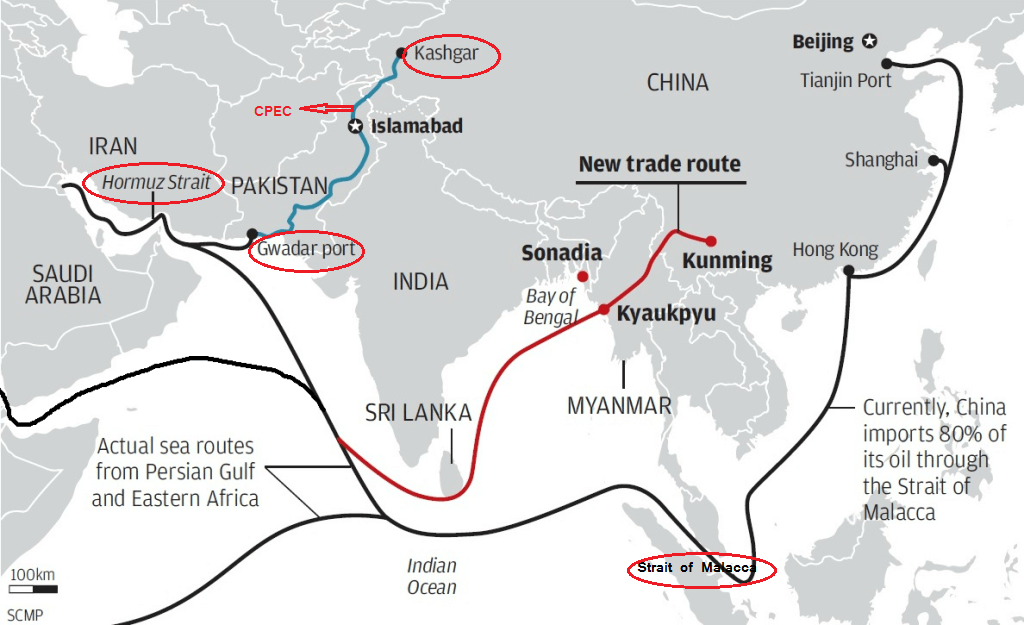What is the issue?
- The Pakistan-based Jaish-e-Mohammad has claimed responsibility for the recent Pulwama Terror Attack. Click here to know more.
- It is significant, in this context, to understand why China is protecting Jaish-e-Mohammad against international actions.
What is India's proposal in this regard?
- The Pakistan-based Jaish-e-Mohammad has carried out multiple attacks on India over the last two decades.
- India sees JeM as the brainchild of the Pakistan army.
- The Pakistan Army and ISI (Inter-Services Intelligence - intelligence agency of Pakistan) is believed to control the Jaish-e-Mohammed.
- The UN Security Council Resolution 1267 prescribes a sanctions regime against designated terrorists and terrorist groups.
- India thus proposed in 2016, after the Pathankot attack, to designate its leader, Maulana Masood Azhar as a global terrorist under the UN 1267 regime.
- But India's proposal has been blocked four times by China, most recently in January 2017, and it continues to protect Jaish.
Why is China shielding Azhar?
- Evidence - China insists that there is not enough evidence to designate him a “global terrorist”, though the rest of the P5 (permanent members in UNSC) believes otherwise.
- So China maintains that it wanted to “uphold the authority and validity of the 1267 Committee”.
- Pak population - China enjoys an overwhelming popularity in Pakistan as 88% Pakistanis view China favourably.
- It is not in Beijing’s interest to disappoint this constituency by accepting India’s repeated demands to list Azhar.
- India - India is part of a short list of economic giants who have refused to participate in the Belt and Road Initiative (BRI) of China.
- India has opposed the China Pakistan Economic Corridor (CPEC), which is part of BRI, as it runs through Pakistan-occupied Kashmir.
- So as China views India as its Asian rival and a competitor, it uses the Azhar issue to make things difficult for India.
- Such tactics are also intended as a message to the US which seeks to build a relationship with India to contain China in the Indo-Pacific.
- CPEC - Besides all the above, the actual reason for China's stance is the cause of Pakistan, it's all weather ally in South Asia.
- China wanted to protect its business interests in the China Pakistan Economic Corridor (CPEC).
Why is CPEC crucial for China?
- China Pakistan Economic Corridor (CPEC) is a key part in Chinese President Xi Jinping’s ambitious Belt and Road Initiative (BRI).
- The BRI aims to connect Asia, Europe and Africa by building and upgrading road, rail, and sea infrastructure on a massive scale.
- Trade - CPEC runs across the length of Pakistan, linking Kashgar in China’s Xinjiang province to the Gwadar deep-sea port near Pakistan’s border with Iran.
- With access to the sea through Gwadar, China will not have to take the long route through the Straits of Malacca (between Malay Peninsula and Indonesia) and around India.
- This would significantly increase it's proximity to the oil shipping lanes through the Strait of Hormuz (between the Persian Gulf and the Gulf of Oman).

- Investment - Chinese firms have invested close to $40 billion in around 45 CPEC projects, about half of which are nearing completion.
- So China is determined to protect this huge investment of money, personnel and time.
- Security - China intends to avoid any terrorist attacks on CPEC infrastructure and thousands of Chinese working on them.
- So in effect, good relations with Pakistan and international protection for ISI proxies like Jaish would mean China's security.
- The project has been targeted by Baloch separatists as well as the Pakistani Taliban.
- They have claimed to be protesting China’s treatment of its Muslim Uyghur minority in eastern Xinjiang.
- But Pakistan has attempted to reassure Beijing on the security of CPEC.
- In 2015, it established a 20,000-personnel Special Security Division drawn from the Army and paramilitary forces in addition to the local police, exclusively to secure CPEC.
- Besides, China has an understanding with other terror outfits too that as long as they don't train the Uyghurs in China, it will not penalise them.
Source: Indian Express
